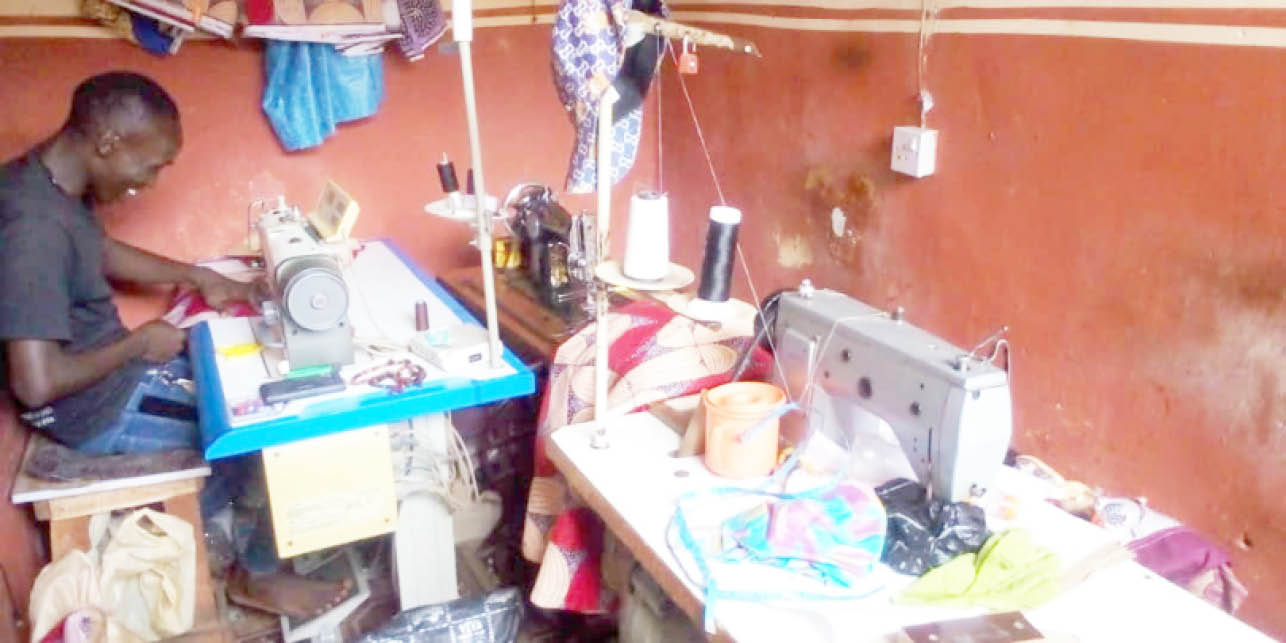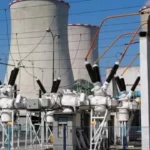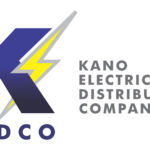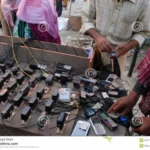The persistent energy crisis in Nigeria has dealt a severe blow to industries, causing shutdowns, hampering productivity and escalating operational expenses. In this report, Daily Trust Saturday writes on the root causes of the power supply woes and the impact of escalating fuel costs on businesses in Nigeria.
Nigerians are facing a dire economic situation as businesses across the country grapple with the twin challenges of unreliable power supply and skyrocketing fuel costs.
Nigeria’s power supply has long been plagued by inefficiency and chronic underinvestment, an expert said.
And despite being Africa’s largest economy, Nigeria’s power generation and distribution infrastructure remain inadequate and unreliable.
In recent times, frequent blackouts and power outages amid high tariffs have become a routine part of life for businesses, disrupting production schedules, leading to losses, and making it difficult to meet consumer demands.
This is further compounded by the recent hike in the cost of petrol that is now beyond the reach of average Nigerians.
Those who spoke to our correspondents said Nigeria stood at a critical crossroads, with businesses shutting down due to poor power supply and the relentless surge in fuel costs.
They said the impact on the economy and the lives of ordinary citizens was severe and required immediate attention.

They also said that to secure a brighter future for Nigerian businesses and the overall economy, concerted efforts from the government, private sector and international stakeholders were needed to address the energy crisis and chart a path towards sustainable growth and development.
“There is nowhere in the world where there is no subsidy,” said Umar Mohammed, an economist who works in a multi-national company in the United States.
“The reason why small and medium enterprises are collapsing in Nigeria is that there is no subsidy for them at all. They pay for light through their noses, and in most cases, electricity is not even available and they have to use diesel or petrol. Nigerians must also provide their own security for their business premises. Above all, they pay multiple taxes.
“This is not the case elsewhere. I have worked in at least four countries – Germany, Russia and the United Arab Emirate (UAE) and the difference is clear. Governments provide the enabling environment, constant electricity with various options, all in an effort to make people live a fulfilling life,” he said.
In the last two months, the cost of a litre of petrol in Nigeria has jumped from N195 to N617 without commensurate increase in the income of the citizens.
In many parts of the country, residents rarely get up to 12 hours of electricity, even as some communities live for days in darkness, with only few capable of buying petrol or diesel.
Amid power outages and crippling business opportunities, the House of Representatives had to wade in few days ago and called on the Nigeria Electricity Regulatory Commission (NERC) to put a stop to the planned increase in electricity tariff for now.
Distribution companies (DisCos) recently alerted customers of a planned electricity tariff hike, which was hinged on the Multi-Year Tariff Oder (MYTO).
Assuming they had their way, previous exchange rate of N 441/$1 would be revised to approximately N750/$1, which would have an impact on the tariffs associated with electricity consumption.
It was gathered that under the planned hike, consumers within ‘B’ and ‘C’ with supply hours ranging from 12–16 hours per day would pay N100 per KWh, while Bands ‘A’ with 20 hours and above and ‘B’ with 16 to 20 hours would experience comparatively higher tariffs.
At present, the Multi-Year Tariff Order (MYTO – 2022) approved by the NERC to run from 2022 to 2026, consumers who were paying about N16 per kilowatt an hour in 2015 now pay about N55, while maximum demand customers under band A, who were expected to enjoy electricity for 20 hours per day are paying about N71 to N80 for one kilowatt per hour.

Businesses struggle to stay afloat
The impact of the power crisis on businesses has been nothing short of catastrophic.
Small and medium enterprises, which form the backbone of Nigeria’s economy, have been particularly vulnerable.
Continuous power disruptions force businesses to turn to expensive alternative power sources, such as diesel generators to maintain operations.
However, running generators comes with exorbitant costs, and many businesses are unable to bear this financial burden.
As a result, several businesses have been forced to shut down or scale back their operations, leading to significant job losses and reduced economic growth.
We’ll soon be forced out of business – SMEs
Inuwa Muhammad who sells soft drinks in Kano said he closed his shop due to lack of electricity and cannot afford powering his refrigerators with generators.
He said, “My capital is not more than N200,000 and what I am getting from the business cannot sustain it if I use a generator to power the refrigerators. And people will not buy if it is not cold.”
The pain of Abubakar Muhammad, a taxi driver, is also connected to the hike in the price of petrol, which made him sell off his vehicle.
He said he could no longer bear the cost of maintenance and buying petrol while there are fewer passengers on the road.
Ado Mai-Kayanmiya, a popular vendor of perishable food items in Hotoro, Kano, recently put a pause on his business on the ground of hike in the price of the items as a ripple effect of the cost of transportation.
“I have no choice than to halt everything and stop selling pending when things will stabilise. People are complaining every day that things are getting more costly,” he said.
In Jos, Plateau State, some business owners who spoke with Daily Trust Saturday said they were in dilemma as a result of epileptic power supply and petrol hike, which have led to skeletal operations, low patronage and gradual shutdown.
A businessman, Philip Galadima, who is into dry-cleaning service in the Rukuba road area of Jos, said that since the fuel subsidy removal started, things had been very difficult for him.
While the cost of production has increased, he is also battling low patronage.
An Irish potato seller, Faruq Rabilu, who purchased the product from Bokkos Mangu, Barkin Ladi, among other villages, said fuel subsidy removal had seriously affected his business.
“It has led to an increase in transportation, which has directly impacted on everything along the business value chain,” he said.
Malam Abubakar Yuguda, who runs a tailoring shop at Gombe Old Market for the past 15 years, said that despite opening daily for business, he had not made five sets of clothes in the past two months owing to poor power supply and high cost of living.
He said most of his customers stopped patronising him when he increased his rate in response to the hike in petrol price.
Daily Trust Saturday observed that the story is the same for most of the tailors in that area of the market where Malam Yuguda operates his shops.
One of the tailors, Habibu Shuaibu said, “We are now in a dilemma because when we charge higher we will lose our customers. At the same time, we cannot afford to run the sewing machines on generators and still make profit.”
Our correspondent reports that apart from tailors, other people affected by the removal of subsidy and poor power supply are those who run commercial phone charging outlets.
Babangida Adamu, who runs his business at the Bomala area of Gombe metropolis, said he had closed his shop.
Investigation by our correspondent revealed that businesses are closing shops in Zaria, Kaduna State while others are running at a loss.
Aliyu Shehu, 28, who operates a barbing saloon said, “We run at a loss because of the high cost of fuel; but then, if I abandon the business, how do I feed my wife and two children? That’s why, no matter what, I just have to manage and stay in business,” he said.
Also, the managing director of Countryside Communications Limited, Mr Johnson Okanlawon, which offers in computer services and agent banking, lamented the difficulties in running his business in Lagos because of the fuel price increase and shortage of power supply.
According to him, the hike in fuel price is hurting the business, saying, “I make photocopies, spiral-binding and lamination, among other things that require constant power supply to thrive.”
He said he recently changed to a gas-enabled generator to reduce the cost of buying petrol to power his business.
“When I discovered that the cost of buying fuel to power my generators was killing, I changed to a gas-enabled generator last Monday, and that’s good for me because the gas is now cheaper and lasts longer,” Okanlawon said.
A welder at Mafoluku, Oshodi in Lagos, who introduced himself as Uncle Wale Welder, told Daily Trust Saturday that the twin calamity of irregular power supply and the rising cost of fuel in the country were gradually pushing him away from making ends meet.
Uncle Wale said the price hike had increased his operational cost and squeezed profit margin. “As machine operators, we rely heavily on power, but as fuel prices rise, our daily operational expenses also rise.”
Corroborating Uncle Wale on how the hike in pump price of fuel and irregular power supply are taking a toll on their businesses, a hair-dressing salon owner, Ayo Omo-Ade, told this newspaper that irregular power supply and expensive fuel had limited her working hours because of the cost implications.
Lady Omo-Ade said she closed her shops earlier than usual in this era of increased prices of fuel and abnormal power supply for her business to thrive.
She noted that power outages during hairdressing processes led to interruptions and inconsistent service quality.
“This may affect customers’ satisfaction and retention, which in return is potentially impacting our client base and reputation,” Omo-Ade said.

Laudable initiatives are pilot-tested, not superimposed – Dr Yayi
Some experts who spoke to Daily Trust Saturday said several factors contributed to Nigeria’s power supply challenges, including inadequate maintenance of existing power plants, over-reliance on fossil fuels, lack of investment in renewable energy sources, and poor governance of the power sector.
These issues have resulted in an inability to generate sufficient electricity to meet the demands of the growing economy, leading to a detrimental impact on businesses.
A lecturer in the Department of Social Sciences Education, University of Ilorin, Dr Timothy Opeyemi Yayi, said the status of most businesses could be termed comatose as a result of poor power supply.
He added that the current realities had made many businesses to collapse or be on the verge of extinction.
He said heavy taxation held the jugular of business tycoons and multinationals but more variables were surfacing.
“Business has been slow and productivity lowered considering the heavy reliance on power supply. The high cost of petrol has a direct influence on production as patronage of business has been incredibly low. It can be averred that only a few businesses are surviving this period. Many are considering alternatives to electricity and fuel, like renewable energies comprising solar and wind,” he said.
While affirming that the hardship imposed by the high cost of fuel and poor power supply is biting very hard, Yayi said it signalled a paradox of audibility to the deaf and visibility to the blind.
“Many experts have come up with ways of salvaging the situation, either in the interim or the long term. Of course Nigerians have a very strong elasticity, but this can reach its limit. We can only pray against the French Revolution of 1789 from replicating in Nigeria. One of the measures of preventing this is to take policies bit by bit. No matter how good a policy or an idea is, once there are rebellious subjects, it cannot see the light of day and anarchy could set in. Laudable initiatives are always pilot-tested and not superimposed.
“Many Nigerians live below $1 per day. How do you expect such a person to keep quiet while you cage him and make him powerless? Our leaders should try and adopt the situational leadership style and not be straight-jacketed.
“In another instance, more taxation should not be the solution now. The cost of governance is now very high and the taxpayers bear the brunt. I believe the removal of subsidy is good, but it should not be done at once but gradually,” Yayi told Daily Trust Saturday.
The Special Assistant to President Bola Tinubu on Revenue, Zacch Adedeji, last week revealed that the federal government was working on reducing the number of taxes paid in the country to 10.
The presidential aide, who is a former executive secretary of the Nigeria Sugar Development Council, said there were currently 52 taxes being collected in the country, which is impacting on efficiency.
He said, “We collect 52 taxes as a country. I have not seen any country in the world where they collect that much tax across the different levels of government.
“We want to enhance revenue generation without putting too much burden on citizens or stifling our economy. We will do this by collapsing and harmonising taxes to enhance revenue without introducing new taxes.
“After harmonising the taxes, we will only have 10 that will be universal, one of which will be on betting,” he said.
Jide Olasunkanmi, Lagos; Abubakar Sadiq Moh’d, Zaria; Salim Umar Ibrahim, Kano; Dickson S. Adama, Jos & Haruna Gimba Yaya, Gombe

 Join Daily Trust WhatsApp Community For Quick Access To News and Happenings Around You.
Join Daily Trust WhatsApp Community For Quick Access To News and Happenings Around You.


